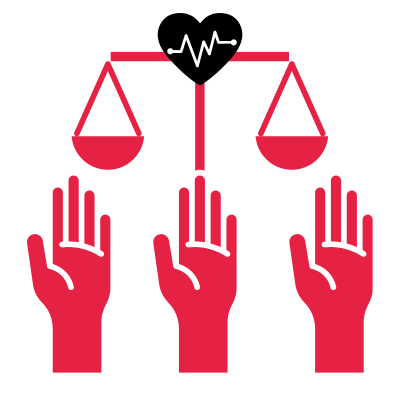Vol. 20 (2023): Population Health Equity for People with Intellectual Disability, Autism, and Mental Health Challenges and Other Special Populations

Dear Reader,
For this September 2023 issue, our partner organization, Woods System of Care, has joined us to curate and launch “Population Health Equity for People with Intellectual Disability, Autism, Mental Health Challenges and Other Special Populations.”
Health equity means that everyone has a fair and just opportunity to be as healthy as possible while acknowledging that not everyone is the same or requires the same services. Health equity crosses over many sectors, not only disability but also child welfare, criminal and juvenile justice, and aging.
Why is it important to focus on health equity for those with intellectual disabilities, autism, or mental health challenges, and other special populations? Disparities in access to healthcare and health outcomes are significant for those with any disability, especially for the 35% of people with intellectual disability or autism who also have a mental health diagnosis. In the U.S., 1 in 5 people has a mental health diagnosis—that equates to over 43 million people. The need is incredibly great. There are more than 7 million people with an intellectual disability diagnosis in the U.S., and 1 in 36 children diagnosed with an autism spectrum disorder. Exacerbating the issue, people who belong to minority groups tend to be diagnosed later and less often. This leads to their missing out on early intervention, which can make an enormous difference in supporting healthy development. Mental health challenges alone—considering that 60% of adults with a mental illness do not receive treatment—have a tremendous impact on a person’s overall health and well-being, which are compounded by other disabilities.
The articles in this issue speak to three broad themes—access to healthcare, inclusion, and promising practices. Just a few of the topics authors address include fostering health equity for Latinx populations with cultural awareness; a 10-step plan for pursuing equity for individuals with intellectual and developmental disabilities and autism and systems change; creating affordable housing for community members with disabilities; a statewide program funding pioneering inclusive, healthy community initiatives for those with disabilities; and using data and technology to enable health equity.
We hope that all stakeholders in this space—individuals receiving services, families, providers, policymakers, and government agencies—will be able to take valuable information from this issue.
Tine Hansen-Turton, Woods Services, Guest Edition Curator and Editor
Nicholas Torres, Co-Founder, Social Innovations Journal




